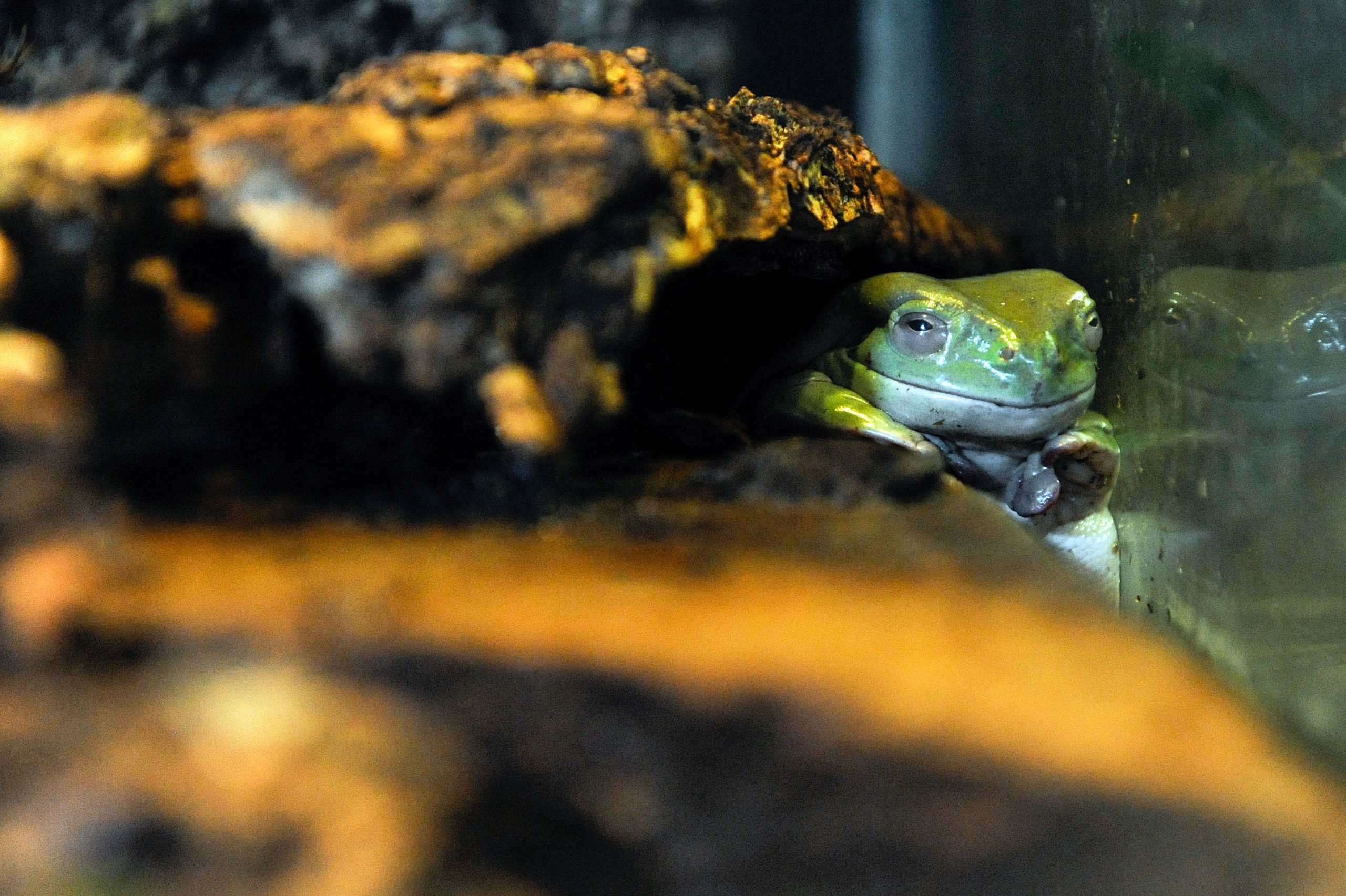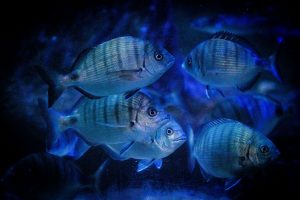
White’s tree frogs are an adaptable species native to Australia and New Guinea. A milky white coating called “caerviein” helps them survive in dry areas, allowing them to live in agricultural and suburban areas. White’s tree frogs do not typically live in or near water, but instead live in trees. Rain collects on leaves, in cup-shaped plants and in crevices in tree trunks, allowing the frogs access to water. These places are replenished with water from the almost daily rains and the frogs always have a source of water to keep themselves moist.
These frogs range in colour from a light blue to emerald green or almost grey across their backs and milky white bellies. Females have white throats, and males have a greyish wrinkled vocal sac underneath their throat. Like many other tree frogs, White’s tree frogs can change colour to some degree. These frogs have enormous toe pads with partial webbing between fingers and almost complete webbing between toes.
These frogs are very docile and unafraid of humans. They are nocturnal and come out in early evenings to call (in spring and summer) and hunt for food. During the day, they find cool, dark, and moist areas, such as tree holes or rock crevices, in which to sleep.
Type
Amphibian: Docile tree dwelling frog
What do they eat?
Insects, moths, locusts and roaches
Size
Max 11.5cm
Water Type
Land
Where are we?
Australia and New Zealand

